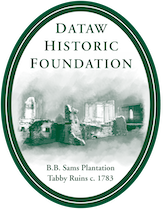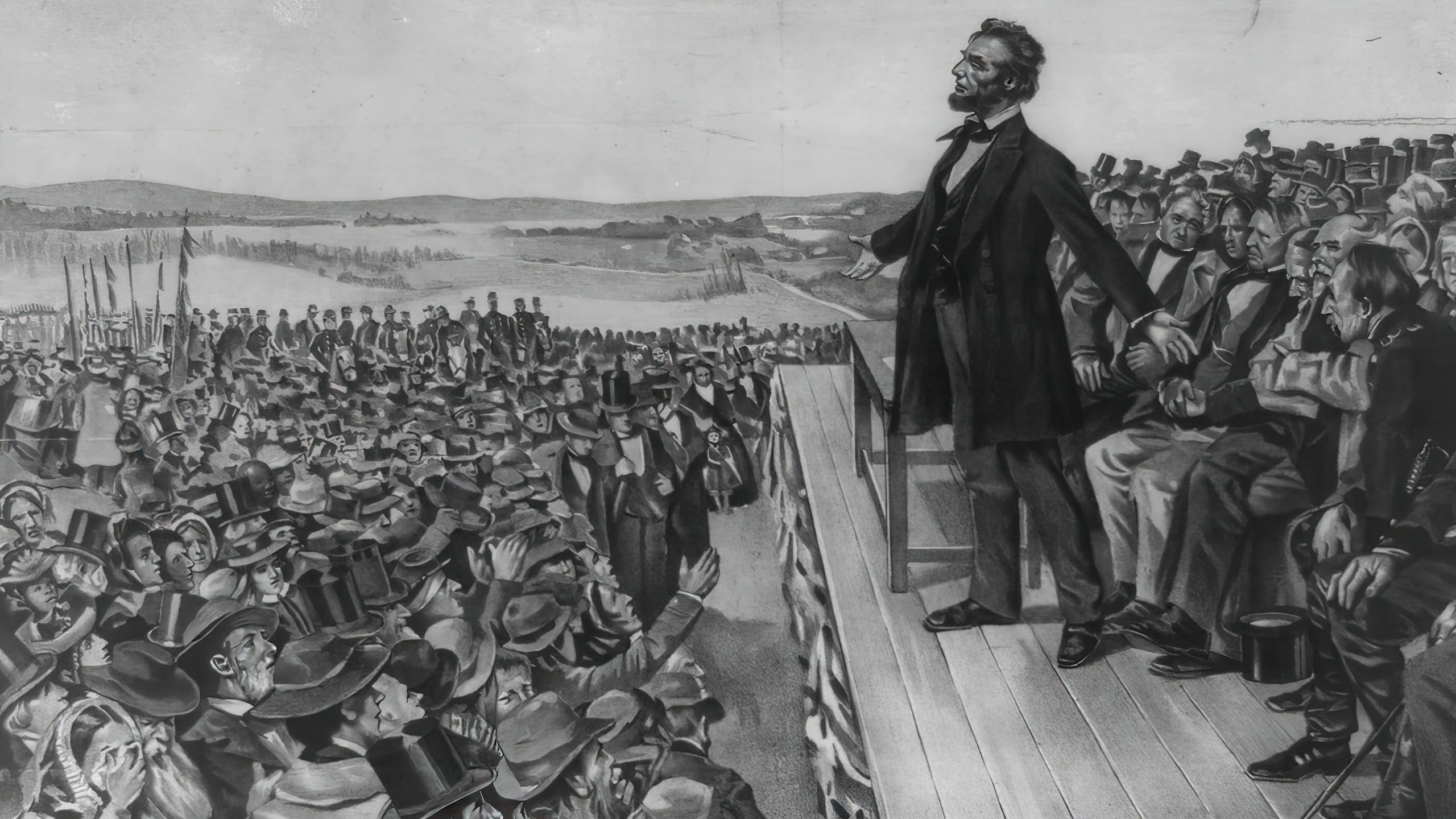November 19, 1863, President Abraham Lincoln gave his two-minute address to the 15,000 gathered for the dedication of the National Cemetery at Gettysburg, PA. Image courtesy of the Library of Congress. Circa 1905.
Thursday, November 19, 1863, at about 3 PM, as the sun broke through the clouds, President Abraham Lincoln gave his two-minute address to the 15,000 gathered for the dedication of the Soldiers’ National Cemetery at Gettysburg, PA. We’ve all read it, studied it, and seen it (on the wall at the Lincoln Memorial in Washington D.C.) I’m going to discuss the Gettysburg Address in a moment. The most interesting part of his speech is often skimmed over, “..of the people, by the people, and for the people..”
First, I thought a summary of the Sams family members who served in the Confederate States of America army would provide some interesting context for you.
Sams of South Carolina who Served
The Civil War was the first war in American history in which a substantial proportion of the adult male population participated.
U.S. National Park Service
Many of you may have had ancestors who served in the Civil War, on either side, or both! On this occasion, I thought it would be good to search the National Park Service’s Civil War Soldiers and Sailors System for Sams of South Carolina, who served in the Confederacy. Thanks to the genealogical information we have on the Sams, I figured out how the NPS results fit into our Beaufort, SC area Sams, including three soldiers the NPS does not include any one particular case.
William & Elizabeth Sams had seven sons, but only four were married with issue. These four sons and their wives all died before the conflict began. However, these four had ten sons and eight grandsons who served in the Confederate forces.
The 18 soldiers plus one cadet are listed by their fathers (or grandfathers) below:
John Sams (1769-1798) had three grandsons who served in the war (William Berners, John Hanahan, and Mikell Seabrook.)
Lewis Reeve Sams (1784-1856) had five sons who served (Lewis Reeve Jr., Stanhope Augustus, Marion Washington, Richard Fuller, Thomas Fuller) and four grandsons who served (James Graham, Calhoun, Robert Oswald, Joseph Edings.)
BB Sams (1787-1855) had four sons who served (Robert Randolph, Horace Hann, Franklin Fripp, Charles Clement) and one grandson who severed (James Verdier.) BB Sams also lost a grandson at the Citadel on the eve of the Civil War (Cadet Hugh Toland Sams.)
Edward Hext Sams (1790- about 1845) had one son who served (Cornelius Angelon.)
Three of the 18 men who served in the Confederate army died in the war; Major Horace Hann Sams, his younger brother Charles Clement Sams, and their cousin (once removed), Joseph Edings Sams. In addition, Cadet Hugh Toland Sams, a grandson of BB Sams, died at the Citadel on the eve of the war.
You can read more about these four here: Four Young Men
Gettysburg Address
What you may not know about President Lincoln’s address is that five different copies exist. Three were rewritten by the president after he gave the speech. However, only one of the surviving copies is signed and dated. This Bliss Copy, named for Colonel Alexander Bliss, is generally accepted as the official version, as evidenced by the fact that it was used for the engraving in the Lincoln Memorial.
Recently, I came across a great article by Allen C. Guelzo, an American historian at Princeton University who has written extensively on President Lincoln and Gettysburg. What really struck me was his focus on the last, albeit the longest, of the ten sentences that constitute Lincoln’s Gettysburg Address.
It is rather for us to be here dedicated to the great task remaining before us — that from these honored dead we take increased devotion to that cause for which they gave the last full measure of devotion — that we here highly resolve that these dead shall not have died in vain — that this nation, under God, shall have a new birth of freedom — and that government of the people, by the people, for the people, shall not perish from the earth.
President Abraham Lincoln, Gettysburg Address
The three fundamental elements of democracy
Note the last few words, “.. government of the people, by the people, for the people ..” Guelzo calls these the three fundamental elements of democracy. While I’ve heard this expression many times, I’d never thought through what President Lincoln was saying. Mr. Guelzo notes that this, like most of the Gettysburg Address, has its roots in writing the president did before 1863.
The first is consent—government of the people.
“According to our ancient faith,” Lincoln said in his 1854 speech objecting to the Kansas-Nebraska Act, which compromised on slavery, “the just powers of governments are derived from the consent of the governed.” That meant plainly “that no man is good enough to govern another man, without that other’s consent. I say this is the leading principle—the sheet anchor of American republicanism.” [Guelzo]
The second is the people’s voice in the affairs of governing—government by the people.
Lincoln argued that government by the people—through their laws and elections, not by mobs with nooses and shotguns—was the only legitimate expression of democracy. “I do not deny the possibility that the people may err in an election,” he conceded in 1861. “But if they do, the true cure is in the next election.” [Guelzo]
The third is a government that serves the interests of the people—government for the people.
Not those of a monarch, an aristocracy, or an angry and contemptuous elite. For that reason, Lincoln wrote, the government served to do only those things that need “to be done, but which they can not, by individual effort, do at all, or do so well, for themselves,” such as roads and bridges, schools and asylums, the enforcement of the laws and the defense of the nation. [Guelzo]
While the government isn’t “charged with the duty of redressing, or preventing, all the wrongs in the world,” Lincoln said in 1859, it does have the responsibility to keep from “planting and cultivating too many thorns in the bosom of society.”
The president chose his words carefully—especially the prepositions ‘of,’ ‘by,’ and ‘for’ the people.
I know none of the Sams soldiers died at Gettysburg. However, I don’t know whether they fought at Gettysburg. I’m still researching that for you.
Sources
U.S. National Park Service; Civil War Soldiers and Sailors System. Accessed 19 Nov 2022
Sams Family of South Carolina genealogy database, created by Doug Campbell and Joel Holden. Maintained by Bill Riski. Accessed 19 Nov 2022
Lincoln’s Vision of Democracy by Allen C. Guelzo, Wall Street Journal, 8 Nov 2022
St. Luke’s Episcopal Church on Merritt Island, FL. Biography of Mikell Seabrook Sams. Accessed 20 Nov 2022


